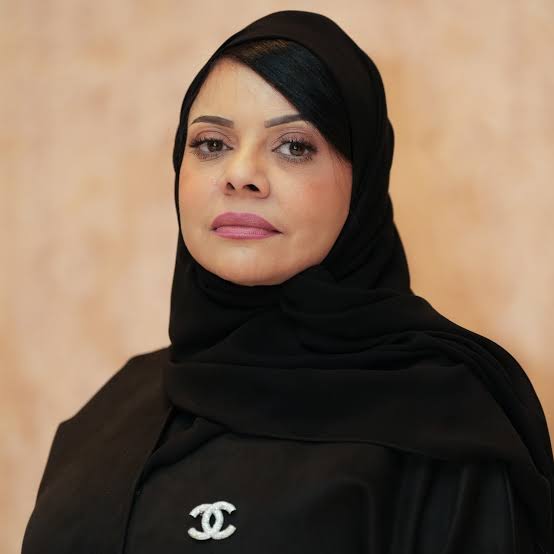In the rapidly evolving landscape of technology and artificial intelligence (AI), certain individuals stand out for their groundbreaking contributions and leadership. Dr. Fatmah Baothman is one such luminary—a Saudi Arabian computer scientist whose pioneering work has not only advanced the field of AI but also paved the way for women’s empowerment in the region. As the first woman in the Middle East to earn a Ph.D. in Artificial Intelligence, Dr. Baothman’s journey is a testament to resilience, innovation, and a commitment to societal progress.
Early Life and Education
Dr. Fatmah Baothman’s academic journey is marked by a series of firsts that underscore her trailblazing spirit. Her fascination with technology began during her studies at the University of Arizona, where she was introduced to computer systems designed to assist non-native English speakers. This exposure ignited her interest in machine communication and interaction, laying the foundation for her future endeavors.
In 2003, Dr. Baothman achieved a historic milestone by earning her Ph.D. in Modern Artificial Intelligence from the University of Huddersfield’s School of Computing and Engineering in the United Kingdom. Her dissertation focused on “Phonology-Based Automatic Speech Recognition for Arabic,” a pioneering work that combined AI with linguistic nuances to enhance Arabic speech recognition systems. This accomplishment not only showcased her expertise but also positioned her as a leading figure in AI research.
Academic and Professional Contributions
Upon returning to Saudi Arabia, Dr. Baothman embarked on a mission to transform the academic landscape for women in technology. She joined King Abdulaziz University (KAU) as an assistant professor in the Faculty of Computing and Information Technology, dedicating over 25 years to teaching and research. Recognizing the need for a dedicated space for women in computer science, she established the Women’s Department at KAU, laying the groundwork for the university’s Computer Science College. Her efforts not only provided educational opportunities for women but also challenged societal norms, encouraging greater female participation in STEM fields.
Dr. Baothman’s commitment to fostering women’s involvement in engineering extended beyond academia. She founded the Saudi Engineering Committee for Women and played a pivotal role in establishing the IEEE Chapter for Women in the Western Region. These initiatives created platforms for female engineers to collaborate, innovate, and lead in a traditionally male-dominated industry.
Leadership in Artificial Intelligence
Dr. Baothman’s influence in the AI sector is both national and international. She serves as the CEO of AlOthaim Investment AI and R&D Company, where she spearheads projects that integrate AI solutions into various industries, driving innovation and economic growth. Her leadership extends to her role as the board president of the Artificial Intelligence Society, an organization dedicated to advancing AI research and applications in Saudi Arabia.
Her expertise is recognized globally, leading to her appointment as a member of the Global Future Council on the Future of Artificial Intelligence by the World Economic Forum. In this capacity, Dr. Baothman contributes to shaping policies and strategies that guide the ethical and effective development of AI technologies worldwide.
Advocacy and Recognition
Dr. Baothman’s dedication to AI and women’s empowerment has garnered numerous accolades. She has received international awards from the United States and the United Kingdom for her research contributions and has been honored with trophies from various Saudi ministries and governmental bodies. Her recognition as one of the AI Visionaries of the Arab world in 2023 further cements her status as a leading figure in the field.
Beyond her professional achievements, Dr. Baothman is a vocal advocate for the ethical use of AI. She emphasizes the importance of establishing “red lines” to ensure AI technologies respect human rights and serve humanity positively. Her insights are sought after in global forums, including the AI for Good Global Summit, where she discusses the role of AI in achieving sustainable development goals.
As we approach the culmination of Dr. Fatmah Baothman’s remarkable story, it becomes increasingly evident that her life’s work transcends titles, positions, or recognitions. At its core, her journey reflects a deeply rooted commitment to pushing boundaries—boundaries in science, gender norms, educational limitations, and regional perceptions of what a Saudi Arabian woman can achieve in the male-dominated world of artificial intelligence. Through sheer determination, academic excellence, and visionary leadership, she has systematically chipped away at longstanding barriers, replacing them with platforms for opportunity, inclusion, and innovation.
Dr. Baothman’s achievements, while exceptional, have never been self-serving. From the onset of her career, she has made it a personal mission to ensure that other women have the opportunity not only to follow in her footsteps but to forge paths of their own. In a country undergoing rapid transformation as part of its Vision 2030 strategy, she has served as both a symbol and a substance of progress. Her establishment of women-centric departments at King Abdulaziz University and her tireless advocacy for inclusive engineering societies has provided fertile ground for the emergence of a new generation of female scientists, coders, engineers, and AI specialists in Saudi Arabia.
Equally noteworthy is her ability to balance academic brilliance with pragmatic leadership. Dr. Baothman is not confined to the lecture hall or laboratory. Her hands-on involvement in AI startups, corporate boardrooms, and international think tanks reflects a multidimensional leader who understands both the theory and real-world application of technology. Her work as CEO of AlOthaim Investment AI and R&D Company is proof that she is not merely theorizing the future of AI—she is building it.
Yet her career is not defined solely by technical innovation. She has remained steadfast in her insistence that AI must evolve responsibly and ethically. In an era where technological advancements often outpace regulations, her voice is among the few that consistently stress the importance of establishing ethical frameworks. She doesn’t just ask what AI can do; she asks what it should do. In many global summits and policy forums, her input on “red lines” in AI has influenced discourse around the safe and humane deployment of intelligent systems.
As the first woman in the Middle East to receive a doctorate in AI, she carries not only her own aspirations but the hopes of thousands of women who see in her the possibility of breaking through ceilings, reimagining roles, and contributing meaningfully to the future of science and society. Through her, they learn that it is indeed possible to be deeply technical and profoundly human; rigorously academic and passionately societal.
In the broader canvas of Saudi Arabia’s technological and cultural renaissance, Dr. Fatmah Baothman stands as a pillar of progress. She is not merely a witness to history; she is writing it. With each initiative she leads, each voice she uplifts, and each innovation she champions, she reminds the world that the future of AI isn’t male, isn’t female—it’s inclusive, it’s ethical, and above all, it’s driven by those bold enough to challenge the status quo.
Conclusion
Dr. Fatmah Baothman’s journey from a curious student to a pioneering AI expert and advocate for women’s leadership is an inspiring narrative of determination and vision. Her contributions have not only advanced the field of artificial intelligence but have also opened doors for countless women in Saudi Arabia and beyond to pursue careers in technology.As AI continues to shape the future, leaders like Dr. Baothman exemplify the profound impact of combining technical expertise with a commitment to societal progress.









